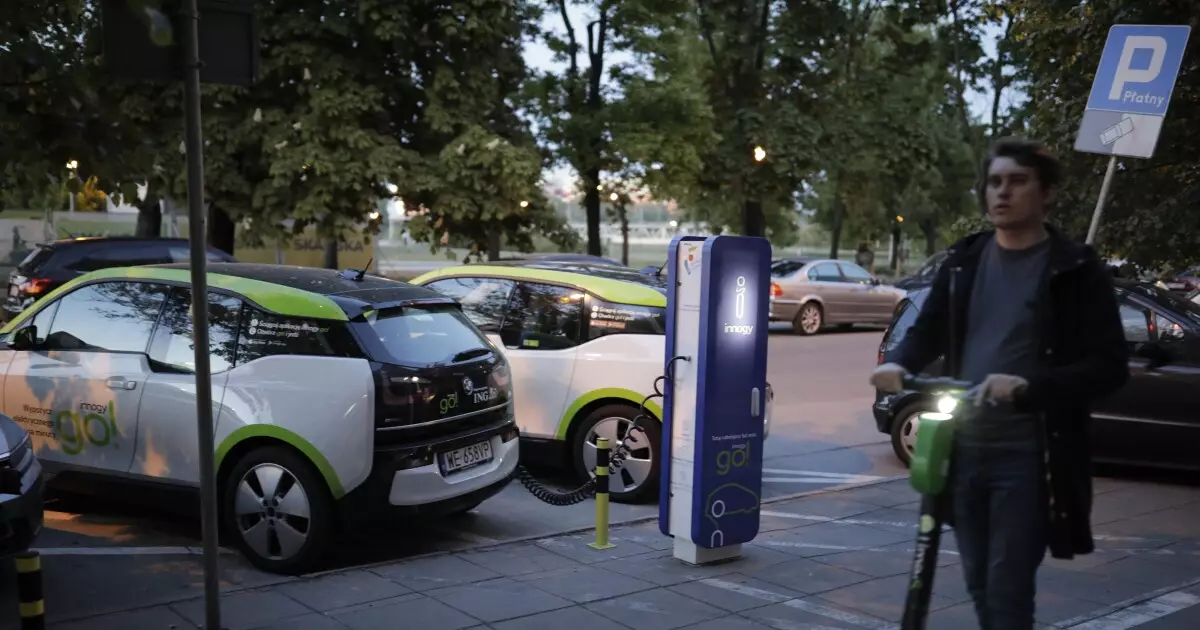5 Disturbing Decisions in the GOP’s Budget Bill That Could Impact America’s Future

In a political landscape where infrastructure funding has become a linchpin for economic growth, the recent decisions by the House Transportation and Infrastructure Committee showcase a troubling reluctance from the Republican Party to take necessary steps toward fiscal responsibility. Abandoning the proposed $20 annual vehicle registration fee—an effort aimed at augmenting the perpetually underfunded Highway Trust Fund—reflects a knee-jerk reaction to internal GOP opposition rather than a strategic vision for America’s transportation future. This rejection narrows the potential for significant discourse on infrastructure funding, relegating it to whispers rather than forthright discussions about long-term sustainability.
The GOP’s hesitance to implement new user fees speaks volumes about its current stance on taxation and revenue generation, where a preference for existing tax models, such as the fuel tax, takes precedence, even though it is increasingly ineffective in today’s economy. Are we to believe that a nominal fee indexed to inflation—which could yield a conservative estimate of over $38 billion within a decade—poses such an existential threat that it must be dismissed outright?
Electric Vehicle Fees: A Band-Aid, Not a Cure
Raising the fee for electric vehicles to $250 while maintaining a $100 levy on hybrids could easily be seen as a retrograde step in the journey toward reducing carbon footprints. If the Republican Party wishes to position itself as forward-thinking, why not leverage the evolving automotive landscape by enhancing supports for green technologies instead of introducing punitive fees? Instead of augmenting the Highway Trust Fund in a significant way, it feels more like an attempt to pay lip service to the needs of modern drivers while simultaneously discouraging the shift toward more sustainable vehicles.
It’s puzzling how such regressive measures emerge from a party that traditionally positions itself as a champion for innovation and entrepreneurship. There’s a golden opportunity here to fundamentally shift the narrative toward supporting the green economy rather than extracting revenue through fees. The approach is both an insufficient remedy and a missed opportunity to truly catalyze change in transportation funding.
Investment Cuts: A Dangerous Precedent
The decision to slash funding for Air Traffic Control modernization and reduce the Coast Guard budget signifies an unnerving prioritization of short-term savings over essential long-term investments. Committee Chair Rep. Sam Graves, R-Mo., justifies this move by indicating a desire to cut “wasteful spending” associated with Green New Deal initiatives. But what he fails to recognize is that these programs—which aim to modernize infrastructure—are integral to America’s standing in global markets and its overall national security.
By reducing funding from $15 billion to $12.5 billion for air traffic control, the GOP is seemingly content to sideline safety and efficiency in favor of budget cuts. Is this the model of governance that serves the American people? The backlash from Democrats indicates that bipartisan support for these crucial investments is needed. Yet, the GOP’s approach, as evidenced by an eight-hour session filled with over 100 rejected amendments, reveals a party more interested in ideological alignment than collaborative solutions.
Border Security and the Fiscal Illusion
It’s important to look critically at the rhetoric surrounding border security and funding. The claim of “historic” investments in the Coast Guard aims to embellish what is fundamentally a defensive stance—a band-aid measure rather than a solution to the multifaceted issues faced at the border. The reality is that broad-spectrum solutions require robust funding, not just for enforcement but for humanitarian aid, community engagement, and comprehensive policy reform.
The Republican party’s fixation on cutting $4.6 billion from various programs aimed at helping communities, including neighborhood equity grants and clean energy initiatives, undermines the very foundations needed for a stable future. This dismissal of funding tailored to foster healthy communities in favor of austere financial measures contradicts the party’s messaging around community empowerment.
A Call for a Balanced Approach
Ultimately, the decisions emerging from the GOP’s budget bill reflect an unsettling trend toward myopic governance. By slashing essential funding and avoiding crucial conversations about revenue generation, the party risks entrenching America deeper into infrastructure dysfunction and socio-economic disparity. It’s time for the GOP to reassess its priorities—not only in reflecting the voices within its own ranks but also in recognizing the needs of the American populace at large. Investments in transportation, public safety, and community well-being should not be seen as excess costs but rather as essential investments that will pay dividends in the economy and lives of everyday Americans.





